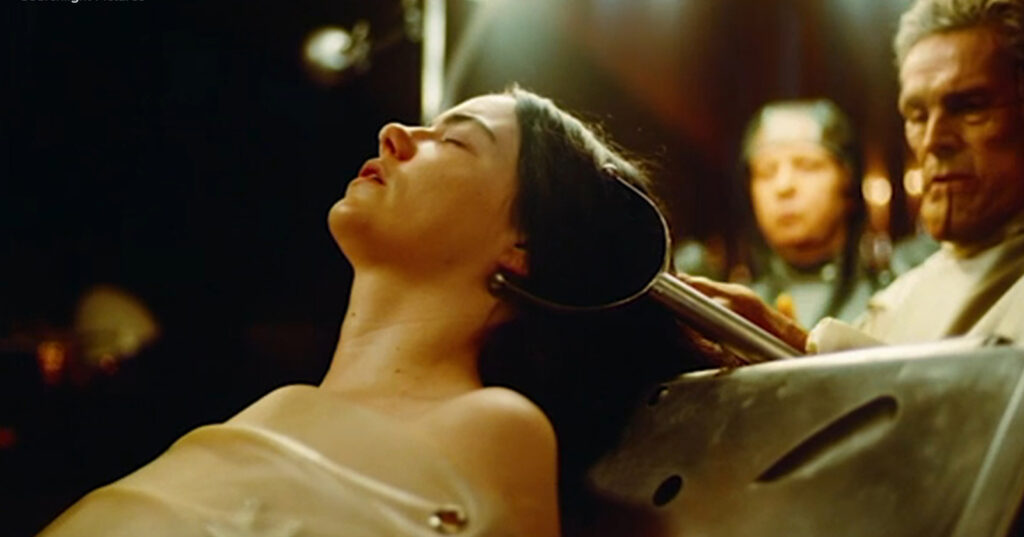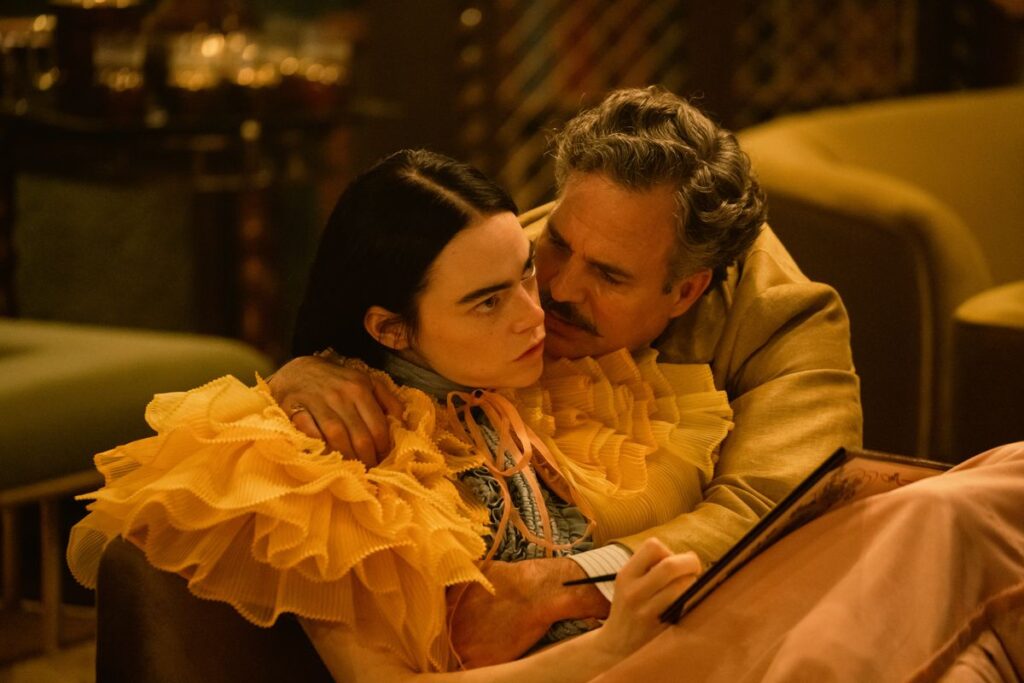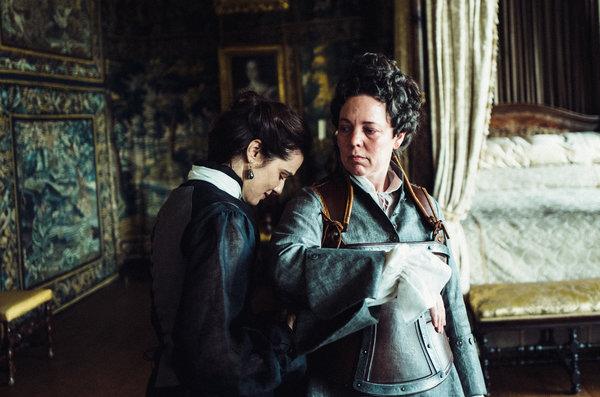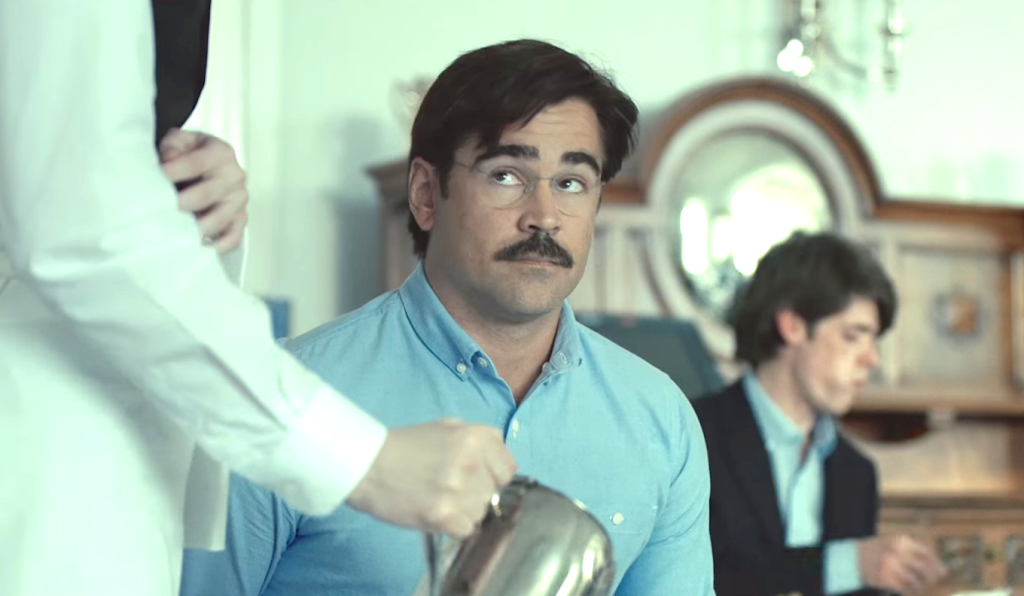
Yorgos Lanthimos (Poor Things) probably enjoyed writing and directing his disgustingly self-indulgent Kinds of Kindness, but there’s no reason for an audience to waste three hours on it. There are three separate stories – equally bizarre fables in Kinds of Kindness. The same ensemble of actors play different roles in each of the three stories: Jesse Plemons, Emma Stone, Willem Dafoe, Margaret Qualley, Mamadou Athie, Hong Chau and Joe Alwyn.
I like absurdism in cinema (see this week’s Mother Couch), but to SOME end; Kinds of Kindness is just an unremitting sequence of outrageously transgressive behavior in weird circumstances. Lanthimos has been quoted that we was exploring relationships and memory, but all we get is a torrent of provocations. So much is being thrown at the screen, including cannibalism, that, at least, it’s not boring.
- In the first story, Jesse Plemons plays a corporate lackey who owes everything to his nightmarishly micro-managing boss (Willem Dafoe), who decrees what he wears, what he eats and drinks, when he has sex with his wife. He’s finally baited into saying “no” to th boss for the first time in eleven years, as his life dissolves.
- In the second, Plemons plays a cop devastated by the disappearance of his wife (Emma Stone, a marine biologist on a research mission. When she is miraculously rescued, he is convinced that it’s not really her, but some malevolent double. There are two extremely funny moments in this chapter – a stunningly ineffectual psychiatrist and a riotously inappropriate home movie. And, then, there’s cannibalism on the menu.
- The final episode involves a cult with a weird fascination for water purity that has sent out scouts (Stone and Plemons) in search for a prophesied young woman who can raise the dead. Stone’s character is kicked out of the cult, and she goes to great lengths to get back in.
Jesse Plemons is exceptional in each of his three roles, and he’s by far the best element of Kinds of Kindness. There’s isn’t a bad performance in Kinds of Kindness, just the finest of screen actors trapped in a bad screenplay. Margaret Qualley continues to act unclothed in what seems to me to be a high proportion of her films.
Lanthimos co-wrote Kinds of Kindness with Efthimis Filippou, as he did with his most off-the-wall work – Dogtooth, which I loved, and The Lobster and The Killing of a Sacred Deer, both of which I hated. (Filippou also co-wrote Athina Rachel Tsangari’s hilarious skewering of male competitiveness, Chevalier (which I REALLY loved). )
Unfortunately, Kinds of Kindness is really just Lanthimos’ exercise in devising outrageous behavior for his characters, just because he can. We don’t need to watch.




